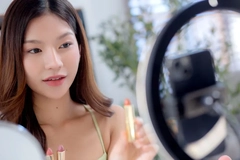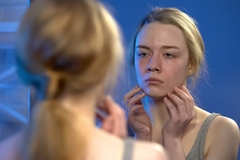PETA US tightens cruelty-free list to close EU animal testing loophole

PETA (People for the Ethical Treatment of Animals) US has updated its Beauty Without Bunnies company list to those that sell in specific countries. The move responds to EU cosmetic testing regulations conflicting with animal testing bans.
PETA’s Beauty Without Bunnies is a cruelty-free program launched in the 1980s designed to provide consumers with information on companies that test on animals and those that do not. The list of certified companies has grown from fewer than a dozen to over 6,300.
The update follows contradictory tensions between the EU’s Cosmetics Regulation, and the REACH (Registration, Evaluation, Authorisation and Restriction of Chemicals) framework. The Cosmetics Regulation aims to ensure the safety of products and ingredients by relying on human-relevant, non-animal tests, but REACH mandates a prescribed list of test data, often requiring tests on animals.

This discrepancy has led to animal testing on cosmetic ingredients to comply with REACH, undermining the animal-test-free status of these products and creating a loophole that PETA has been working to close.
From now on, only companies that sell their products in the US, Canada, Germany, and India will be listed on PETA US’s Beauty Without Bunnies database. PETA entities in these countries continue to accept applications for the cruelty-free designation.
PETA US will suspend its consideration of Beauty Without Bunnies programme applications from companies that sell their products in all other countries until the REACH cosmetics loophole is closed.
The number of ingredients affected by testing decisions under REACH is growing. As a result, companies are at risk of being involved in testing on animals — even if they don’t wish to be — because of the legislative requirements placed on cosmetics ingredient suppliers.
Compassionate beauty
PETA urges the personal care industry to reject all animal testing and embrace advanced, non-animal testing methods to assess the safety of their products. The organization says this would foster a future where beauty is synonymous with compassion.
PETA's updated cruelty-free list excludes certain countries.“Modern and scientifically superior non-animal test methods should and already are being used to ensure the safety of products and their ingredients. Brands can choose to use existing ingredients that have already been proven safe or, if necessary, decide not to develop a product at all if doing so would require animal testing,” PETA head of Science Policy, Dr. Julia Baines, tells Personal Care Insights.
“Companies can also campaign for a cruelty-free future by getting politically active and calling for changes in regulation that move the industry away from animal testing.”
Baines states there is no excuse for tormenting and abusing millions of animals for personal-care products.
“In these cruel tests, chemicals are applied to or injected into animals’ skin or forced down their throats via a tube to check for side effects such as vomiting, tremors, organ failure, paralysis, and even death. This is completely unnecessary, as superior, more accurate animal-free methods are readily available.”
Non-animal testing push
PETA urges all personal care brands to ensure that every product they create is free from animal testing. Last week, we spoke to the organization about how its campaign shut down menopause experiments on marmosets at the University of Massachusetts-Amherst.
In other recent pushes for reducing animal testing, a New Zealand government scheme introduced a certification program that allows brands to sell products in brick-and-mortar stores in China without having to undergo animal testing. The Chinese government requires all beauty products sold on shelves to be tested on animals. New technologies are paving the way for a beauty industry without animal testing.
New technologies are paving the way for a beauty industry without animal testing.
Earlier this year, a bipartisan group of US lawmakers reproposed the Humane Cosmetics Act to prohibit cosmetic animal testing and the sale of animal-tested beauty products nationwide. At the time, we spoke to the Personal Care Products Council about how the beauty industry is moving beyond the need for animal testing.
New technologies are paving the way for a beauty industry without animal testing. For example, human organ-on-a-chip technologies have the potential to replace animal testing in cosmetics. A study demonstrated how personal care products can be evaluated for toxicity more ethically, with faster results compared to traditional cosmetics testing.
\The organ-on-a-chip technology works by creating and sustaining a 3D cell environment that mimics the activities of a human organ, such as the skin.













